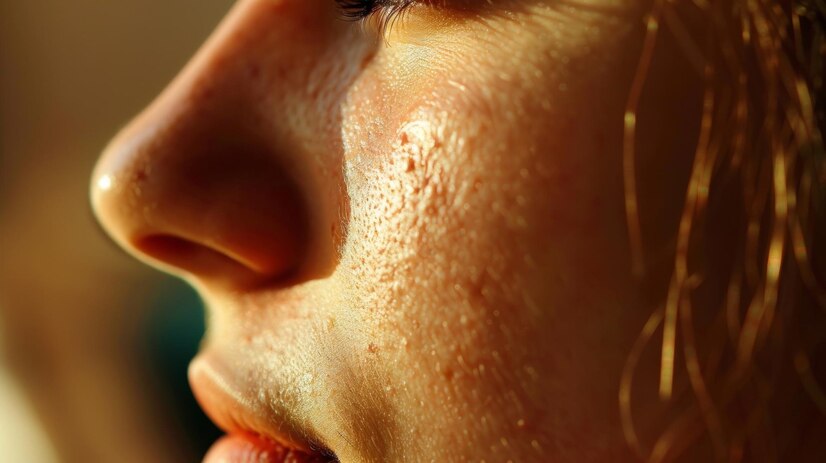The study found that an anti-acne lotion containing ferment lysate was effective in improving acne lesions, reducing transepidermal water loss and sebum production, and overall showed positive results in treating mild-to-moderate acne.
In ‘A pilot study on the efficacy of topical lotion containing anti-acne postbiotic in subjects with mild -to -moderate acne’, a research group led by Hongchang Cui from the San Gallicano Hospital (2022) reported that the study investigated the efficacy of an anti-acne lotion containing ferment lysate in people with mild to moderate acne. After 4 weeks of treatment, a statistically significant improvement in acne lesions was observed. The lotion was found to be safe and well tolerated, with no skin irritation reactions reported. Further research is needed to understand the immunomodulatory mechanism of the postbiotic components in the lotion.
SUMMARY
- After 2 weeks of treatment, a statistically significant improvement in acne lesions was observed compared to baseline (P < 0.01), and this continued to the end of the study
- The results show that the median lethal dose (LD50) of the anti-acne lotion in rats exceeded 2180 mg/kg body weight (BW), which means the lotion can be graded as low-poison preparation
- The result from the skin irritation tests showed that none of the 30 subjects, who participated in the 24-h patch test, had undesirable skin irritation reactions to the anti-acne lotion
- The results from this study suggested a topical antiacne skincare lotion containing ferment lysate from L. plantarum VHProbi R E15 in people with mild to -moderate acne is safe and well tolerated and may be able to ameliorate acne lesions after 4 weeks of treatment
- Detailed molecular studies are needed to determine the underlying immunomodulatory mechanism related to postbiotic components, that contribute to this novel skincare method based on microbiome modulation.
ABSTRACT
Introduction Acne can compromise facial esthetics and become a mental burden, especially when it occurs in puberty. Skincare cosmetics with anti-acne efficiency is more convenient than other treatment modalities, such as dietary supplements, in certain circumstances. The purpose of this study was to investigate the efficacy of an anti-acne lotion in alleviating acne. Methods In our study, an anti-acne lotion containing ferment lysate produced by Lactiplantibacillus plantarum VHProbi ® E15 were applied to subjects with mild -to -moderate acne over 4 weeks. The efficacy was evaluated based on instrumental measurements using Visia ® -CR and CK-MPA ® system. Results and discussion The anti-acne lotion exhibited favorable safety, meeting the stringent criteria for the detection of microbes, heavy metals, toxicity, and irritation. After 2 weeks of treatment, a statistically significant improvement in acne lesions was observed compared to baseline ( P < 0.01), and this continued to the end of the study. After 4 weeks of treatment, the transepidermal water loss ( P < 0.05) and sebum production ( P < 0.05) were significantly decreased in subjects compared to baseline. In addition, the pore/area of interest (AOI) and stratum corneum hydration displayed slightly positive changes throughout treatment. Thus, we conclude that applying topical anti-acne lotion may be safe and confer effective benefits in people with mild -to -moderate acne and represents a promising therapeutic option for acne.
RESULTS
After 2 weeks of treatment, a statistically significant improvement in acne lesions was observed compared to baseline (P < 0.01), and this continued to the end of the study. After 4 weeks of treatment, the transepidermal water loss (P < 0.05) and sebum production (P < 0.05) were significantly decreased in subjects compared to baseline. In addition, the pore/area of interest (AOI) and stratum corneum hydration displayed slightly positive changes throughout treatment. Thus, applying topical anti-acne lotion may be safe and confer effective benefits in people with mild to moderate acne and represents a promising therapeutic option for acne.

Leave A Comment